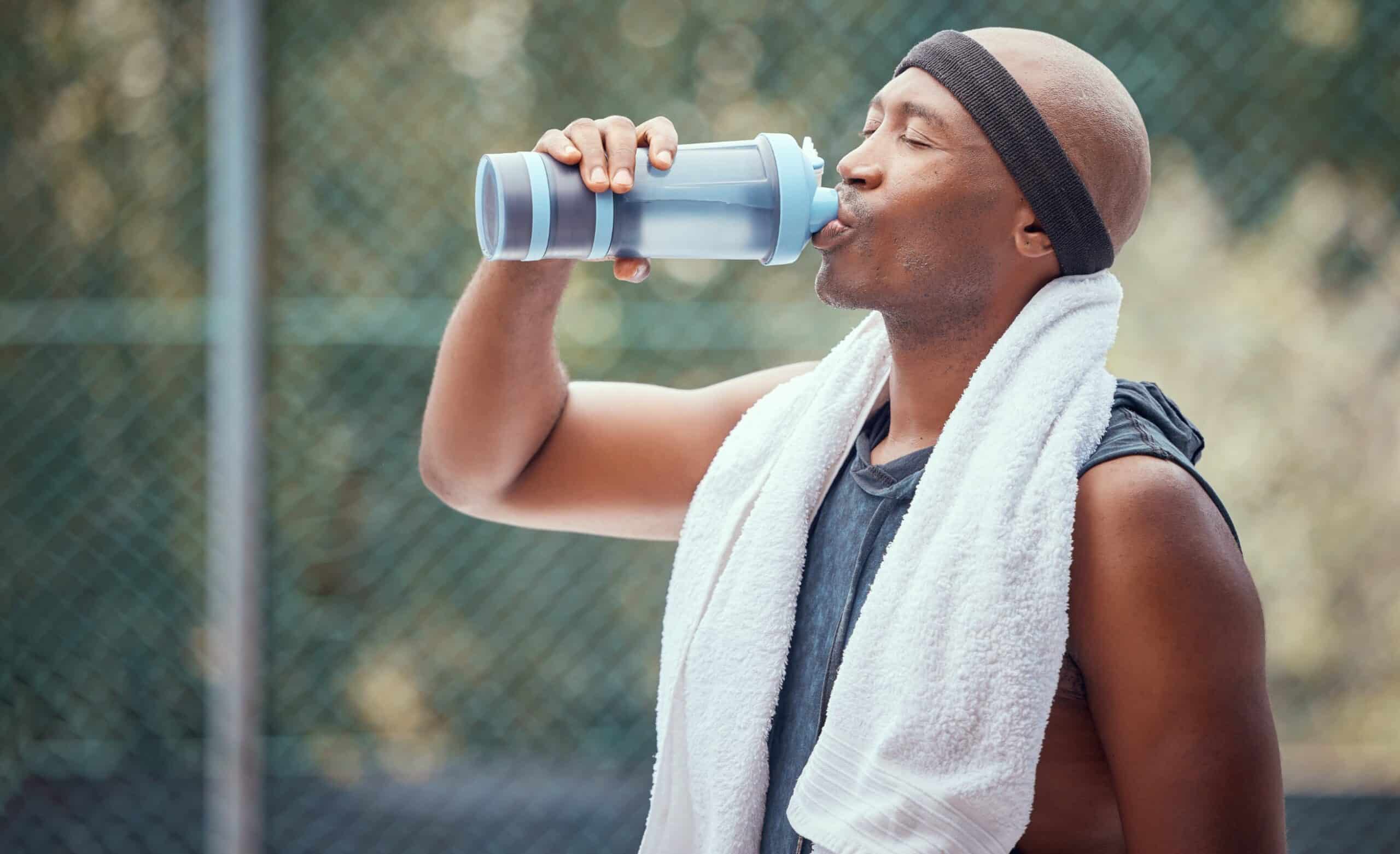One of the basic tenets of a good nutrition program and general health is hydration. We tell our clients and athletes again and again to hydrate while exercising, as well as both pre- and post-workout to replace fluids lost through sweat, but how exactly does hydration affect client performance? Given that the human body is made up of approximately 60% water, it’s no surprise that proper hydration is crucial to a variety of essential functions that can impact athletic performance:
- Fluid helps to regulate body temperature.
When core temperature rises above normal, undo stress is placed on the body, which can interfere with the body’s energy systems. This interference, in turn, negatively affects both performance and recovery. - Fluid helps to regulate blood pressure.
Effectively regulated blood pressure normalizes heart rate and, therefore, manages stress on the body during training and recovery. Excessive stress can lead to inflammation and other processes that can interfere with both performance and recovery. - Fluid helps in the movement and transport of essential energy nutrients.
Essential macronutrients such as carbohydrate, protein, fats and supporting nutrients that are used as energy for the body are all transported by fluid in the body. In addition, fluids help to remove the metabolic waste that is produced during intense exercise.
Optimal performance for any client is dependent upon more than just training. It’s about an expertly designed nutrition plan, rest and adequate hydration, all of which work together to help the body run most effectively. Hydration, in particular, can be overlooked and undervalued by clients as part of a good training program. When this happens, clients risk becoming dehydrated. This dehydration can lead to injuries, heat illness and even hyponatremia, an excessive loss of sodium and imbalance of electrolytes. Dehydration can also make exercise seem more difficult, because of the increased strain placed on the body.
If you haven’t already, now is the time to implement a hydration protocol for clients to best support their training efforts. Consider exercise intensity and duration, breaks and sweat rates as well as these recommendations from ACE on how to maintain optimal hydration:
- Pre-workout
Drink 17 to 20 fl oz of water two to three hours before exercise
Drink 8 fl oz of fluid 20 to 30 minutes before exercise - During workout
Drink 7 to 10 ounces of fluid every 10 to 20 minutes during exercise - Post-workout
Drink an additional 8 ounces of fluid 30 minutes after exercise
Drink 16 to 24 ounces of fluid for every pound of body weight lost during exercise
As with meal plans, a hydration protocol should be consistently followed for best results. Hydration is vital to optimal performance yet so easy to overlook as a strategy to improve performance. Help clients better achieve their goals with something as simple as adequate hydration.








